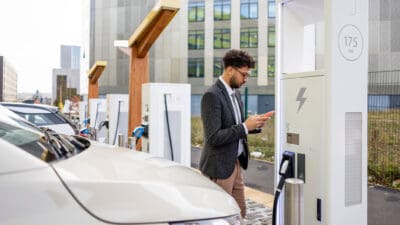The Vulcan Energy Resources Ltd (ASX: VUL) share price is having a strong start to the week.
In morning trade, the lithium developer's shares are up over 12% to $6.79.
Why is the Vulcan share price racing higher?
The catalyst for the rise in the Vulcan share price on Monday has been the release of a promising announcement relating to its Zero Carbon Lithium Project in Germany.
According to the release, the company has produced the highest grade, lowest impurity lithium hydroxide to date from its pilot plant.
The lithium hydroxide was produced from Vulcan's sorption pilot plant, which is located at its commercial geothermal renewable energy plant, with downstream electrolysis processing offsite.
The release notes that the latest material produced graded 57.1% LiOH, which exceeds the best-on-the-market battery grade specification of 56.5% LiOH required from offtake customers. Impurities were also well below market specification minimums.
Another positive is that Vulcan's pilot plant, which has been operating since April 2021, has now produced sufficient data to complete the company's Phase 1 Definitive Feasibility Study (DFS), which is scheduled for the first quarter of 2023.
Based on the above, it seems quite likely that the DFS will be a success.
Management commentary
Vulcan's managing director and CEO, Dr. Francis Wedin, was encouraged by the results. He commented:
As our DFS draws towards its conclusion, we are encouraged by these latest highest grades and lowest impurities recorded to date, from LiCl production from our pilot plant, with electrolysis conducted offsite. The embodied renewable heat within our brine means we are able to leverage sorption, a commercially proven process to extract lithium from brines that requires heat to work. Sorption is highly selective, which means that we can produce a very pure LiCl eluate. This in turn means we are able to use lithium electrolysis, a method of producing lithium hydroxide directly which by its nature produces a very pure product, in excess of the purity required for use in Electric Vehicle (EV) batteries, with minimal reagent usage.
Works are continuing apace on our Demo Plant and DFS, and we are looking forward to sharing further updates with our stakeholders in the coming months, as we continue to execute towards our target of first commercial production from our Zero Carbon Lithium Project in 2025.









